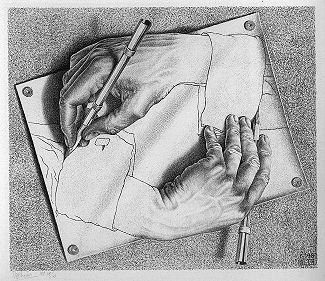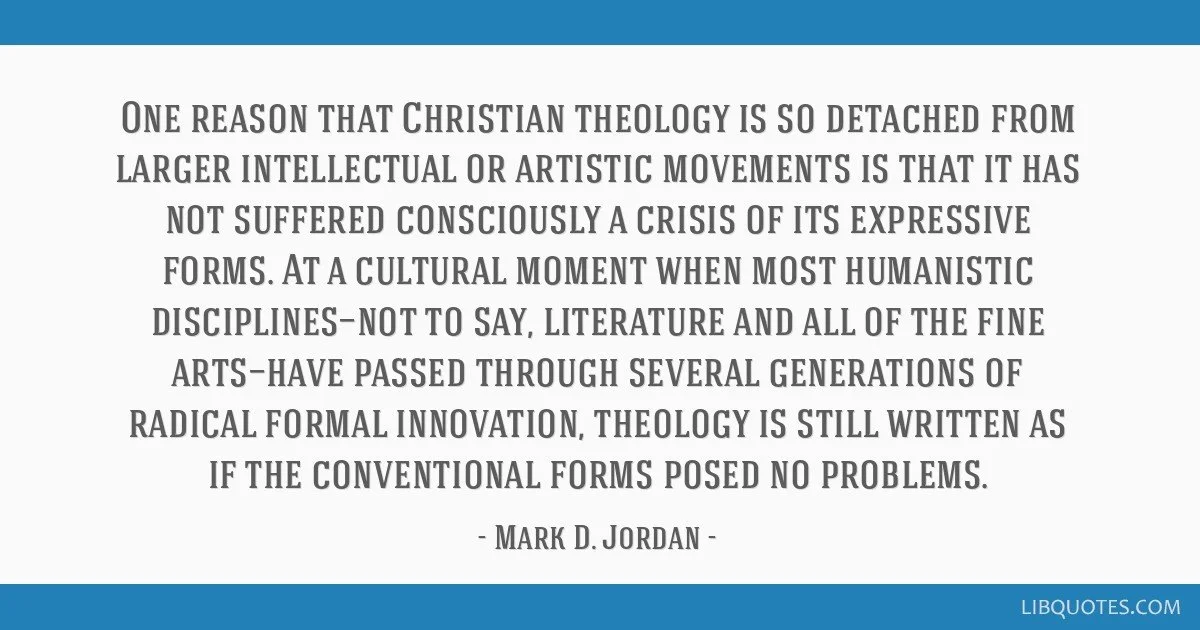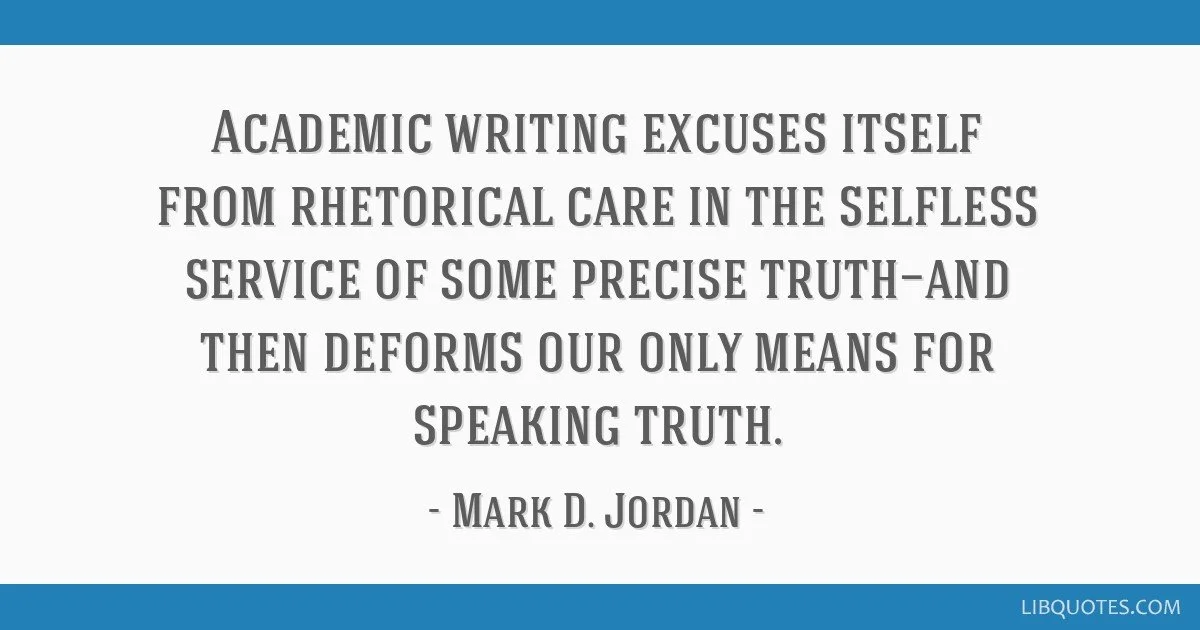Powers of Pen
César "CJ" Baldelomar talks to Dr. Mark Jordan about his theological writing and teaching
Drawing Hands (1948), lithograph by M. C. Escher
In this episode of OP Talks, doctoral candidate César "CJ" Baldelomar talks to his teacher and mentor Dr. Mark Jordan, whose work focuses on Christian theology, European philosophy, and gender studies. The wide-ranging conversation touches on Dr. Jordan's teaching practice, on what led him to theology, and on his devotion to the act of private writing, which he believes helps him understand God.
Whether or not the work ever gets published, Dr. Jordan feels compelled to write “for protest and assertion, for pleasure and politics, but especially for self discernment,” because “I don’t know what I think or what I feel or what I hope until I can write some way into it.” His most sustained writing comprises hundreds of thousands of words in a journal he has kept since he was 16, one that “has taken all kinds of forms that I never expect to see published.”
The criterion of originality--in the humanities, at least-- is “highly overrated," Dr. Jordan tells Baldelomar. "At a most basic level, most of what we say is repetition. Language is all about repetition. Very occasionally, one of us can come up with a phrasing that is absolutely new or invent a word or something like that for good or for ill [but] a lot of theological words have done a lot of damage...The question is how artfully we do the collage."
When it comes to theology education, Baldelomar asks his mentor, what does he see as the power of fragmentation?
"Teaching in fragments is the condition of theology," explains Dr. Jordan. "Because of our ignorance and the limits of our language, we're incapable of giving a complete coherent exhaustive account of divinity, even of what divinity is doing in our individual lives. So one way to keep reminding ourselves of that is to write in fragments, because to write in clean connected systematic text, numbered propositions....encourages the illusion that you have a system. And the one thing you can be sure of in theology is [that] you don't have a system or, if you have a system, it's not theology."





